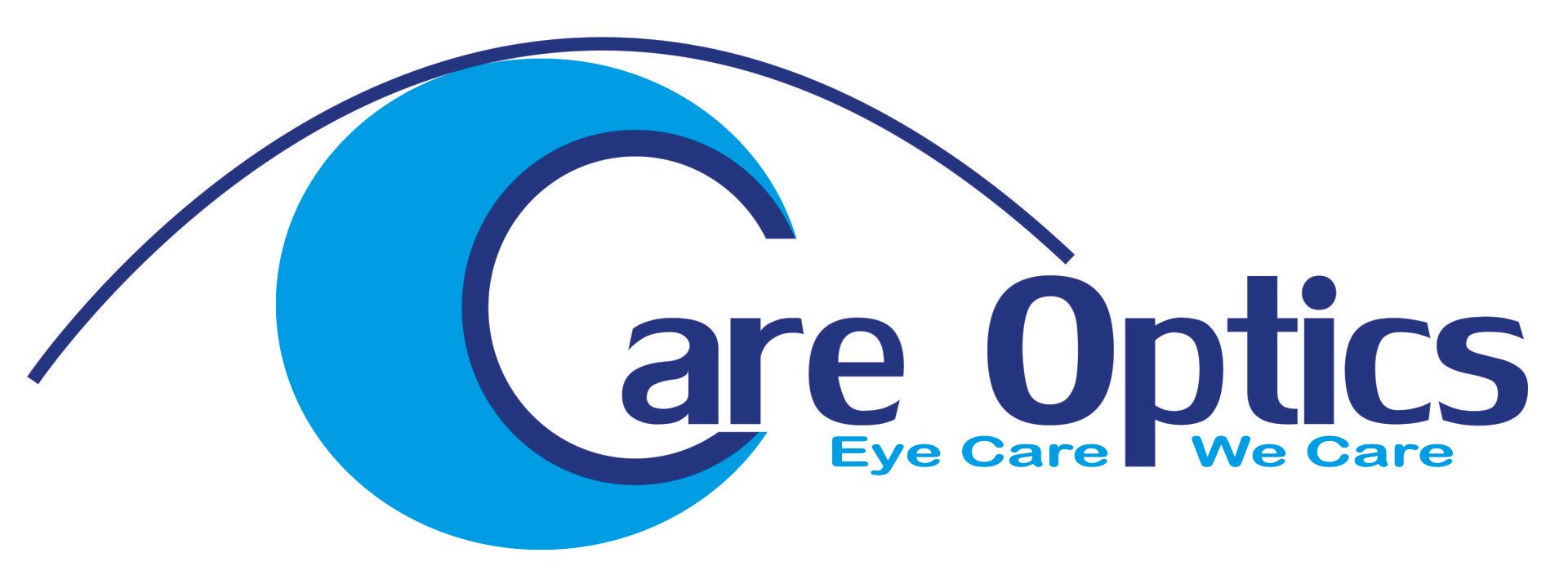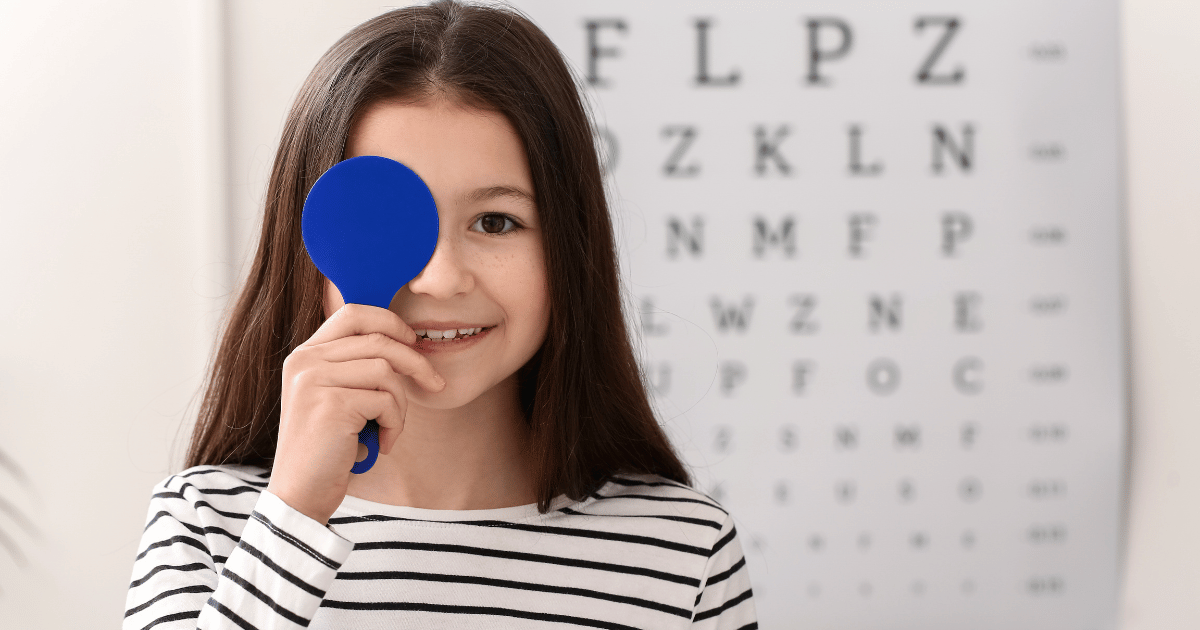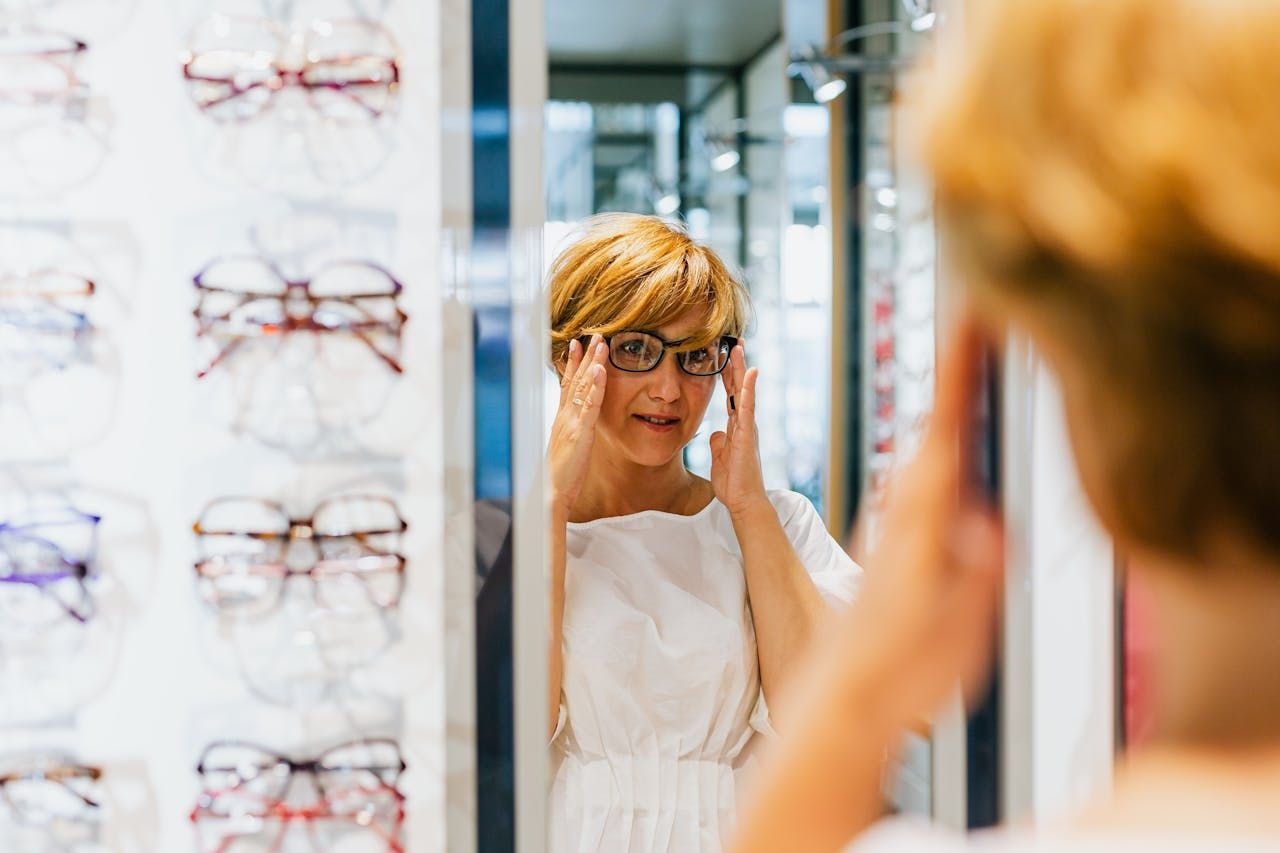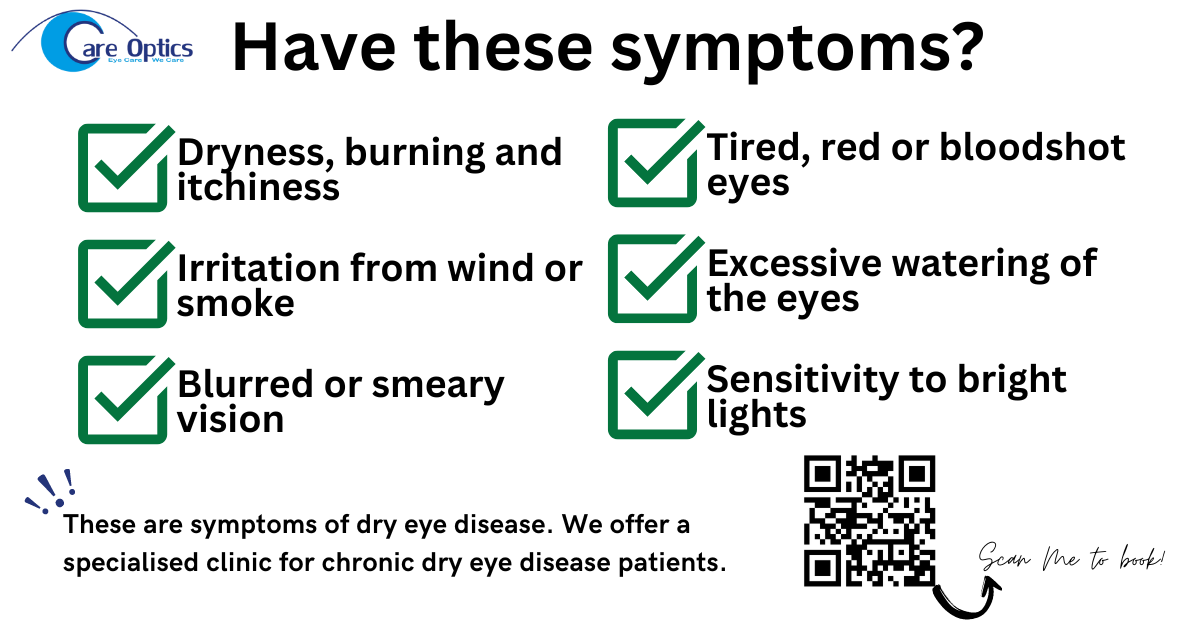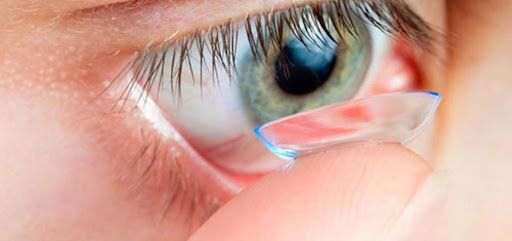Your Questions Answered: The Care Optics Opticians FAQ
- By proadAccountId-420323
- •
- 28 Apr, 2025
- •
At Care Optics Opticians, we believe in clear vision and clear communication. We've compiled some of the most common questions we hear to help you understand more about your eye health and our services.
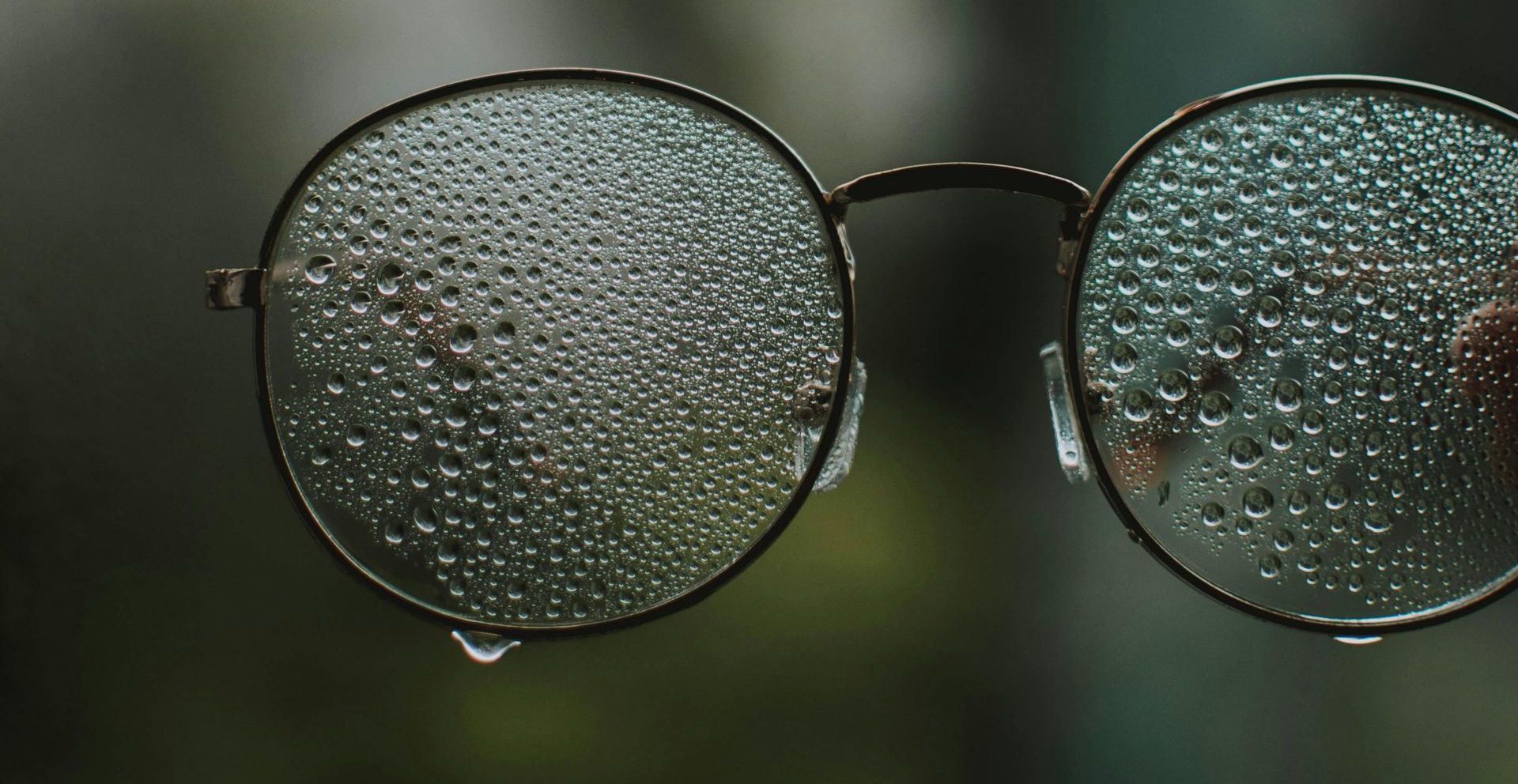
Eye Tests:
How often should I have an eye examination?
For most adults, we recommend an eye examination every two years. However, more frequent checks may be necessary if you have specific eye conditions, a family history of eye problems, or if you experience any changes in your vision. Your optometrist will advise on the best schedule for you.
What does a standard eye examination involve?
A comprehensive eye examination at Care Optics includes a thorough assessment of your vision, including tests for near and distance vision, colour vision, and depth perception. We also evaluate the health of your eyes, checking for conditions like cataracts, glaucoma, and macular degeneration. We'll discuss your lifestyle and visual needs to recommend the best solutions for you.
Do you offer free NHS eye examinations?
Yes, at Care Optics, we are pleased to offer free NHS eye examinations to eligible individuals. This typically includes those over 60, children under 16 (or under 19 if in full-time education), people with diabetes or glaucoma, those with a family history of glaucoma, and those receiving certain benefits. Please contact us to confirm your eligibility.
How long does an eye examination take?
A standard eye examination at Care Optics usually takes around 30-45 minutes. This allows us enough time to conduct all the necessary tests and discuss your results and any recommendations with you.
Should I bring anything with me to my eye examination?
Please bring your current glasses or contact lenses (including the packaging or prescription if you have it), a list of any medications you are currently taking, and your NHS number if you are eligible for a free NHS eye examination. It's also helpful to bring details of any eye problems that run in your family.
Eyewear:
How long will it take to get my new glasses?
The turnaround time for your new glasses depends on the complexity of your prescription and the type of lenses you choose. In most cases, single-vision glasses are ready within a week to ten days. More complex prescriptions or lens coatings may take a little longer. We will give you an estimated collection date during your dispensing appointment.
Do you offer different types of lenses?
Yes, we offer a wide range of high-quality lenses to suit various needs and lifestyles. This includes single vision, bifocal, varifocal (progressive) lenses, as well as lenses with coatings to reduce glare, resist scratches, and offer UV protection. Our experienced dispensing opticians will help you choose the best lenses for your visual requirements and budget.
Can you reglaze my existing frames?
In many cases, yes, we can reglaze your existing frames with new lenses. However, the suitability of your frames will need to be assessed by our dispensing opticians to ensure they are in good condition and can accommodate new lenses safely.
Do you offer a warranty on your frames and lenses?
Yes, all our frames and lenses come with a manufacturer's warranty against defects. The duration of the warranty may vary depending on the brand and product. Please ask our team for specific details.
Contact Lenses:
Do you offer contact lens fittings?
Yes, we provide comprehensive contact lens fittings. Our optometrists will assess your vision, eye health, and lifestyle to determine the most suitable type of contact lenses for you. We offer various types, including daily disposables, monthly lenses, and multifocal options.
How long does a contact lens fitting appointment take?
A contact lens fitting appointment usually takes around 45-60 minutes. This includes the initial assessment, trial lens fitting, and teaching you how to insert, remove, and care for your lenses.
Can I try contact lenses before committing to a purchase?
Yes, we typically offer trial lenses during your fitting appointment to ensure comfort and vision correction are satisfactory before you make a purchase.
Do I need regular aftercare appointments if I wear contact lenses?
Yes, regular aftercare appointments are essential for contact lens wearers to ensure your eyes remain healthy and your lenses are still the best fit for you. We usually recommend annual contact lens aftercare checks.
Myopia Control:
What is myopia control and why is it important for children?
Myopia, or short-sightedness, is a common vision condition where distant objects appear blurry. Myopia control refers to strategies and treatments aimed at slowing down the progression of myopia in children. This is important because higher levels of myopia are associated with an increased risk of developing serious eye conditions later in life, such as glaucoma, retinal detachment, and myopic maculopathy.
What myopia control options do you offer at Care Optics?
At Care Optics, we offer several evidence-based myopia control options, which may include:
How do I know if myopia control is right for my child?
If your child is diagnosed with myopia, or if you've noticed they are experiencing increasing short-sightedness, we recommend booking a myopia control consultation at Care Optics. Our experienced optometrists will conduct a thorough eye examination, discuss your child's lifestyle and visual needs, and advise on the most suitable myopia control options for them.
How effective is myopia control?
The effectiveness of myopia control treatments can vary depending on the individual child and the chosen method. However, studies have shown that these interventions can significantly slow down the progression of myopia compared to wearing standard single-vision glasses or contact lenses. Early intervention generally leads to better outcomes
What is the process for starting myopia control treatment?
The process typically involves a comprehensive eye examination and a dedicated myopia control consultation. During this consultation, we will discuss the available options, answer all your questions, and develop a personalised treatment plan for your child. This may involve a fitting process for MiYOSMART lenses or Ortho-K, or a discussion about the use of low-dose atropine. Regular follow-up appointments are essential to monitor the effectiveness of the treatment and make any necessary adjustments.
Hearing Tests:
Do you offer hearing tests at Care Optics?
Yes, at Care Optics in Enfield, we are pleased to offer comprehensive hearing tests. We understand that good hearing is just as important as good vision for your overall well-being. Our qualified audiologists use advanced equipment to assess your hearing ability accurately.
What does a hearing test involve?
A typical hearing test at Care Optics involves several stages. We'll start by discussing your hearing history and any concerns you may have. Then, we'll perform a physical examination of your ear canal and conduct a series of tests in a soundproof booth. These tests may include pure-tone audiometry (to measure the quietest sounds you can hear at different frequencies), speech audiometry (to assess your ability to understand spoken words), and tympanometry (to check the condition of your middle ear and eardrum).
How long does a hearing test take?
A standard hearing test at Care Optics usually takes around 45-60 minutes. This allows our audiologist to conduct all the necessary assessments and discuss the results with you in detail.
How often should I have a hearing test?
We generally recommend that adults have a hearing test every two years, especially if you are over the age of 50 or have noticed any changes in your hearing. If you have concerns about your hearing at any age, it's always best to get it checked sooner rather than later.
What happens after my hearing test?
After your hearing test, our audiologist will explain your results clearly and answer any questions you may have. If any hearing loss is detected, we will discuss the available options, which may include hearing aids or other management strategies. We offer a range of discreet and advanced hearing solutions to suit your individual needs and lifestyle. If further medical evaluation is required, we will refer you to a specialist.
If you have any other questions not covered here, please don't hesitate to contact our friendly team at Care Optics Opticians in Enfield. We're always happy to help you with both your eye and hearing care needs!
Contact Us
For most adults, we recommend an eye examination every two years. However, more frequent checks may be necessary if you have specific eye conditions, a family history of eye problems, or if you experience any changes in your vision. Your optometrist will advise on the best schedule for you.
What does a standard eye examination involve?
A comprehensive eye examination at Care Optics includes a thorough assessment of your vision, including tests for near and distance vision, colour vision, and depth perception. We also evaluate the health of your eyes, checking for conditions like cataracts, glaucoma, and macular degeneration. We'll discuss your lifestyle and visual needs to recommend the best solutions for you.
Do you offer free NHS eye examinations?
Yes, at Care Optics, we are pleased to offer free NHS eye examinations to eligible individuals. This typically includes those over 60, children under 16 (or under 19 if in full-time education), people with diabetes or glaucoma, those with a family history of glaucoma, and those receiving certain benefits. Please contact us to confirm your eligibility.
How long does an eye examination take?
A standard eye examination at Care Optics usually takes around 30-45 minutes. This allows us enough time to conduct all the necessary tests and discuss your results and any recommendations with you.
Should I bring anything with me to my eye examination?
Please bring your current glasses or contact lenses (including the packaging or prescription if you have it), a list of any medications you are currently taking, and your NHS number if you are eligible for a free NHS eye examination. It's also helpful to bring details of any eye problems that run in your family.
Eyewear:
How long will it take to get my new glasses?
The turnaround time for your new glasses depends on the complexity of your prescription and the type of lenses you choose. In most cases, single-vision glasses are ready within a week to ten days. More complex prescriptions or lens coatings may take a little longer. We will give you an estimated collection date during your dispensing appointment.
Do you offer different types of lenses?
Yes, we offer a wide range of high-quality lenses to suit various needs and lifestyles. This includes single vision, bifocal, varifocal (progressive) lenses, as well as lenses with coatings to reduce glare, resist scratches, and offer UV protection. Our experienced dispensing opticians will help you choose the best lenses for your visual requirements and budget.
Can you reglaze my existing frames?
In many cases, yes, we can reglaze your existing frames with new lenses. However, the suitability of your frames will need to be assessed by our dispensing opticians to ensure they are in good condition and can accommodate new lenses safely.
Do you offer a warranty on your frames and lenses?
Yes, all our frames and lenses come with a manufacturer's warranty against defects. The duration of the warranty may vary depending on the brand and product. Please ask our team for specific details.
Contact Lenses:
Do you offer contact lens fittings?
Yes, we provide comprehensive contact lens fittings. Our optometrists will assess your vision, eye health, and lifestyle to determine the most suitable type of contact lenses for you. We offer various types, including daily disposables, monthly lenses, and multifocal options.
How long does a contact lens fitting appointment take?
A contact lens fitting appointment usually takes around 45-60 minutes. This includes the initial assessment, trial lens fitting, and teaching you how to insert, remove, and care for your lenses.
Can I try contact lenses before committing to a purchase?
Yes, we typically offer trial lenses during your fitting appointment to ensure comfort and vision correction are satisfactory before you make a purchase.
Do I need regular aftercare appointments if I wear contact lenses?
Yes, regular aftercare appointments are essential for contact lens wearers to ensure your eyes remain healthy and your lenses are still the best fit for you. We usually recommend annual contact lens aftercare checks.
Myopia Control:
What is myopia control and why is it important for children?
Myopia, or short-sightedness, is a common vision condition where distant objects appear blurry. Myopia control refers to strategies and treatments aimed at slowing down the progression of myopia in children. This is important because higher levels of myopia are associated with an increased risk of developing serious eye conditions later in life, such as glaucoma, retinal detachment, and myopic maculopathy.
What myopia control options do you offer at Care Optics?
At Care Optics, we offer several evidence-based myopia control options, which may include:
- MiYOSMART Lenses: These innovative spectacle lenses from HOYA use DIMS (Defocus Incorporated Multiple Segments) technology to slow down myopia progression while providing clear distance vision.
- Orthokeratology (Ortho-K): This involves wearing specially designed rigid gas-permeable contact lenses overnight to gently reshape the cornea, providing clear vision during the day without the need for glasses or regular contact lenses. Ortho-K has also been shown to slow myopia progression.
- Low-Dose Atropine Eye Drops: In some cases, low-dose atropine eye drops may be recommended by our optometrist as a myopia control strategy. This is usually used in conjunction with other methods and requires careful monitoring.
- Specialised Soft Contact Lenses: Certain soft contact lenses are specifically designed with peripheral defocus technology to help slow myopia progression.
How do I know if myopia control is right for my child?
If your child is diagnosed with myopia, or if you've noticed they are experiencing increasing short-sightedness, we recommend booking a myopia control consultation at Care Optics. Our experienced optometrists will conduct a thorough eye examination, discuss your child's lifestyle and visual needs, and advise on the most suitable myopia control options for them.
How effective is myopia control?
The effectiveness of myopia control treatments can vary depending on the individual child and the chosen method. However, studies have shown that these interventions can significantly slow down the progression of myopia compared to wearing standard single-vision glasses or contact lenses. Early intervention generally leads to better outcomes
What is the process for starting myopia control treatment?
The process typically involves a comprehensive eye examination and a dedicated myopia control consultation. During this consultation, we will discuss the available options, answer all your questions, and develop a personalised treatment plan for your child. This may involve a fitting process for MiYOSMART lenses or Ortho-K, or a discussion about the use of low-dose atropine. Regular follow-up appointments are essential to monitor the effectiveness of the treatment and make any necessary adjustments.
Hearing Tests:
Do you offer hearing tests at Care Optics?
Yes, at Care Optics in Enfield, we are pleased to offer comprehensive hearing tests. We understand that good hearing is just as important as good vision for your overall well-being. Our qualified audiologists use advanced equipment to assess your hearing ability accurately.
What does a hearing test involve?
A typical hearing test at Care Optics involves several stages. We'll start by discussing your hearing history and any concerns you may have. Then, we'll perform a physical examination of your ear canal and conduct a series of tests in a soundproof booth. These tests may include pure-tone audiometry (to measure the quietest sounds you can hear at different frequencies), speech audiometry (to assess your ability to understand spoken words), and tympanometry (to check the condition of your middle ear and eardrum).
How long does a hearing test take?
A standard hearing test at Care Optics usually takes around 45-60 minutes. This allows our audiologist to conduct all the necessary assessments and discuss the results with you in detail.
How often should I have a hearing test?
We generally recommend that adults have a hearing test every two years, especially if you are over the age of 50 or have noticed any changes in your hearing. If you have concerns about your hearing at any age, it's always best to get it checked sooner rather than later.
What happens after my hearing test?
After your hearing test, our audiologist will explain your results clearly and answer any questions you may have. If any hearing loss is detected, we will discuss the available options, which may include hearing aids or other management strategies. We offer a range of discreet and advanced hearing solutions to suit your individual needs and lifestyle. If further medical evaluation is required, we will refer you to a specialist.
If you have any other questions not covered here, please don't hesitate to contact our friendly team at Care Optics Opticians in Enfield. We're always happy to help you with both your eye and hearing care needs!
Contact Us
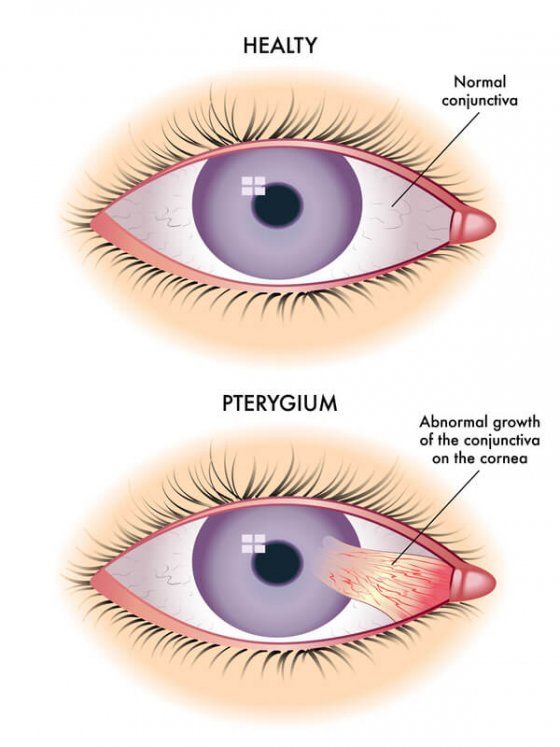
Also known as "Surfer's Eye", Pterygium is an elevated, wedged-shaped growth from the lining of the eyelid onto the cornea. Although is benign, the growth itself can permanently disfigure the eye, reduce significantly the eyesight or even cause blindness. It became known as "Surfer's eye" because it is usually a consequence of being exposed to bright sun for long hours, specially by the water or snow - which reflects the UV rays to your eyes.
Causes
As written above, UV exposure seems to be one of the main reasons for Pterygium development, but wind and dust can also cause it as this leads to Dry Eye Disease, which by consequence will lead to this condition. Genetics may also play an important part, as some people seem to be more at risk than others.
Signs & Symptoms
Pterygium usually appears on the side of your eye that is closest to the nose, but it can also appear on the other sometimes. It is common to have it in one eye only, although sometimes it may appear on both eyes.
There are people who don't experience any symptoms or require treatment in the beginning, but as the growth develops, there can be redness, gritty, itchy or burning sensation, the eyes can become irritated and even swollen.
When the Pterygium starts to invade the cornea, it distorts the shape of the front of the eye, causing the curve of the cornea to change, leading then to refractive errors (Astigmatism in most cases).
Treatment
The treatment depends on the size of the Pterygium itself. If it's just a small growth, your Optometrist/Ophthalmologist can advise the patient on lubricants (eye drops or gels) to temporary reduce symptoms like redness, swelling, itchy or gritty felling.
If the Pterygium is more advanced, the only option is then surgery.
How to avoid it
As previously said, UV radiation and exposure seems to be one of the main reason leading to Pterygium. For that you have the perfect solution that is available for everyone - sunglasses . A good pair of sunglasses will filter the UV rays, giving you a sharper vision but also protecting you from conditions like Pterygium, Cataracts, Glaucoma, etc. Make sure to buy your sunglasses from a Optician instead of a shop non-related to eye care. A good pair of sunglasses should have UVA, UVB and UVC protection, and usually those shops will only have one of those protections - or even none.
We remind you that if you have any of these symptoms or any other, if you need to book an appointment or if you have any queries, please contact us over phone or email. We will be very happy to help you.
Keep in mind: At Care Optics - Eye Care, We Care
Causes
As written above, UV exposure seems to be one of the main reasons for Pterygium development, but wind and dust can also cause it as this leads to Dry Eye Disease, which by consequence will lead to this condition. Genetics may also play an important part, as some people seem to be more at risk than others.
Signs & Symptoms
Pterygium usually appears on the side of your eye that is closest to the nose, but it can also appear on the other sometimes. It is common to have it in one eye only, although sometimes it may appear on both eyes.
There are people who don't experience any symptoms or require treatment in the beginning, but as the growth develops, there can be redness, gritty, itchy or burning sensation, the eyes can become irritated and even swollen.
When the Pterygium starts to invade the cornea, it distorts the shape of the front of the eye, causing the curve of the cornea to change, leading then to refractive errors (Astigmatism in most cases).
Treatment
The treatment depends on the size of the Pterygium itself. If it's just a small growth, your Optometrist/Ophthalmologist can advise the patient on lubricants (eye drops or gels) to temporary reduce symptoms like redness, swelling, itchy or gritty felling.
If the Pterygium is more advanced, the only option is then surgery.
How to avoid it
As previously said, UV radiation and exposure seems to be one of the main reason leading to Pterygium. For that you have the perfect solution that is available for everyone - sunglasses . A good pair of sunglasses will filter the UV rays, giving you a sharper vision but also protecting you from conditions like Pterygium, Cataracts, Glaucoma, etc. Make sure to buy your sunglasses from a Optician instead of a shop non-related to eye care. A good pair of sunglasses should have UVA, UVB and UVC protection, and usually those shops will only have one of those protections - or even none.
We remind you that if you have any of these symptoms or any other, if you need to book an appointment or if you have any queries, please contact us over phone or email. We will be very happy to help you.
Keep in mind: At Care Optics - Eye Care, We Care

February is AMD and Low Vision Awareness Month, a crucial time to focus on eye health and early detection of vision-threatening conditions. Learn about Age-Related Macular Degeneration (AMD), low vision solutions, and how to protect your sight with expert eyecare at Care Optics in Woodford and Dagenham. Take advantage of our special offers, including 20% off eyewear every Wednesday and discounted eye exams for over-60s before 1pm. Book your appointment today and prioritise your vision health!
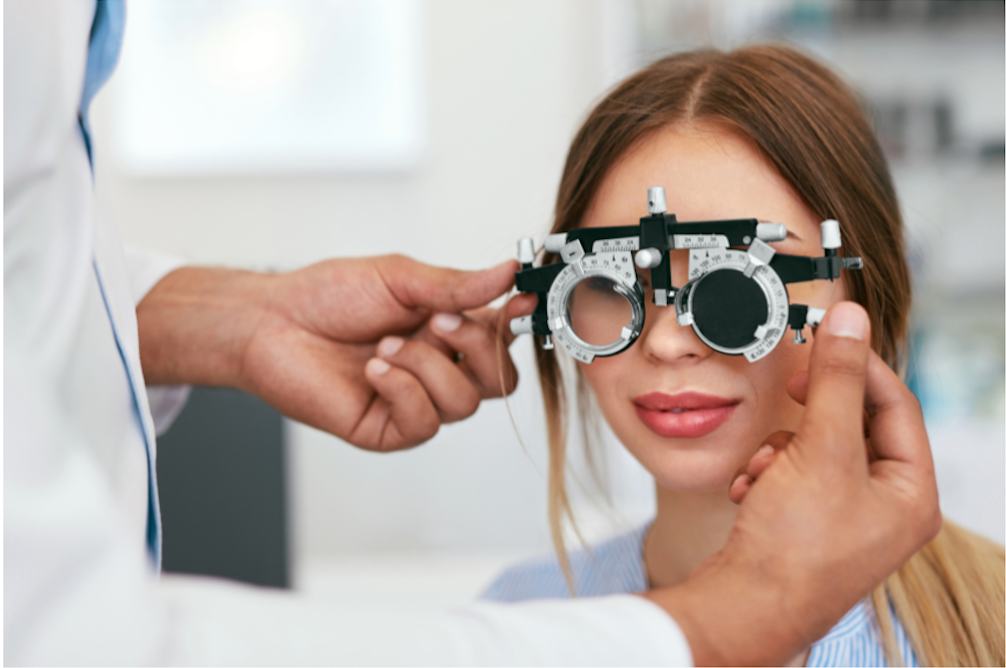
Regular eye examinations are essential for maintaining good vision and detecting potential eye health issues early. At Care Optics, we provide advanced eyecare services in Woodford and Dagenham, including OCT scans, varifocals, and myopia control. Plus, take advantage of our special offers—20% off frames, lenses, and sunglasses every Wednesday, and discounted eye exams for over-60s before 1pm. Book your appointment today for expert eye care and clear vision!
